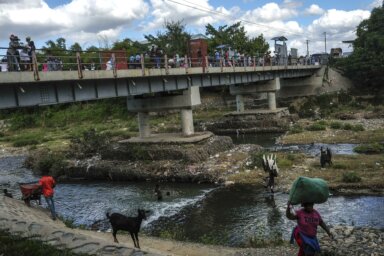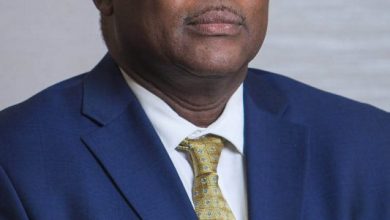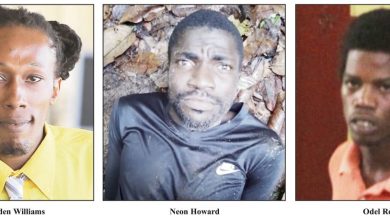Dominican Republic to close all borders despite push to resolve diplomatic crisis

DAJABON, Dominican Republic (AP) — The president of the Dominican Republic announced Thursday that he would close all borders with neighboring Haiti starting Friday despite a flurry of last-minute meetings to prevent him from taking such action.
President Luis Abinader said the closure of air, sea and land borders would occur at 6 a.m. Eastern Standard Time Friday and will remain shuttered “until necessary.” It is a rare move for the Dominican Republic, and it is expected to cripple both country’s economies.
The looming closure is a response to the construction of a supposed canal on Haitian soil that targets waters from the Massacre River, which runs along the border shared by both countries on the island of Hispaniola. It is not clear who, if anyone, ordered the excavation.
Abinader in recent days also suspended issuing visas to Haitians and closed the border near the northern town of Dajabon, paralyzing a key economic lifeline for Haitians who buy and sell goods there several times a week. Those who live in Haiti but work in the Dominican Republic also cross the border daily.
“They are suffering a lot here in Dajabon, and in Haiti, too, because there are a lot of goods that are spoiling,” said Haitian businessman Pichelo Petijon. “There are millions of dollars in losses.”
Abinader accused Haiti of trying to divert water from the Massacre River and claimed it would affect Dominican farmers and the environment. The river is named after a bloody clash between French and Spanish colonizers in the 1700s, and it also was the site of a mass killing of Haitians by the Dominican army in 1937.
Jorge Duany, an anthropology professor at Florida International University who has studied Caribbean nationalism and migration, said tensions between Haiti and the Dominican Republic flare every so often amid simmering resentment.
“This is a very complicated border situation that does not seem to have an immediate solution,” he said.
The office of Haitian Prime Minister Ariel Henry could not be immediately reached for comment.
On Wednesday, Haiti’s Ministry of Foreign Affairs said it was meeting with Dominican officials in the Dominican Republic to talk about the situation.
The Dominican government said Thursday that the meeting stretched into its second day but provided no details. The meeting was ongoing when Abinader announced he would close all borders starting Friday.
A line already was forming Thursday on the Dominican border town of Dajabon, with dozens of people seeking to cross into Haiti for various reasons, many with heavy bags balanced on their heads or suitcases in hand.
Authorities were opening the gate only three times a day and only allowed people to cross into Haiti. Among those waiting to cross was a 47-year-old Haitian man who only gave his name as Egnel. He said one of his young daughters is sick and he needs to take her to the hospital, adding that he doesn’t mind risking not being able to return despite having a job at a banana farm in the Dominican Republic.
“My objective is to take care of my daughter,” he said.
Coto reported from San Juan, Puerto Rico.





